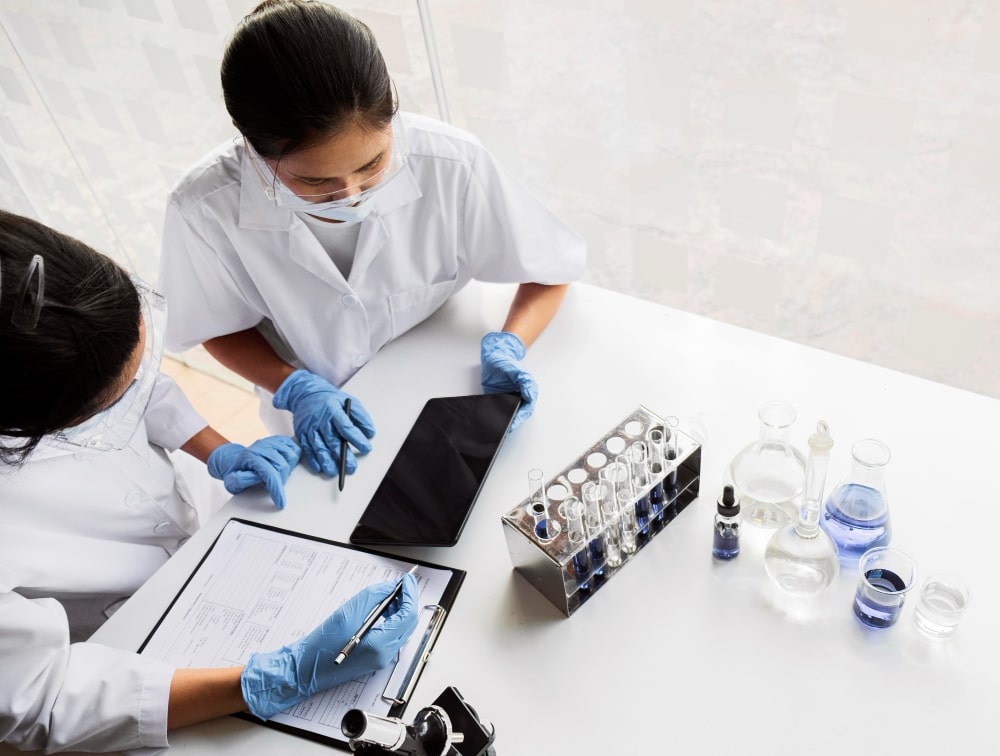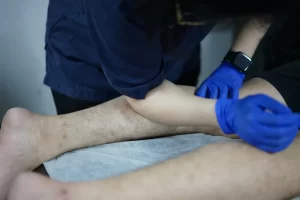Non-surgical studies are an efficient method for evaluating new therapies. These studies, ranging from pharmacokinetics to toxicology offer critical insights without the complexity or invasiveness of surgical procedures.
For sponsors developing pharmaceuticals or non-invasive medical devices, non-surgical studies provide a fast, cost-effective, and ethically responsible path to understanding therapeutic performance and advancing toward regulatory approval.
Key Takeaways
- Non-surgical studies offer a fast and efficient way to evaluate therapies, allowing researchers to quickly gather safety and efficacy data without the complexity of surgical intervention.
- These studies reduce risk and support ethical research practices which allows for longer-term observation and improved animal welfare by minimizing invasiveness.
- They are cost-effective and scalable, making them ideal for startups and early-phase developers seeking high-impact data without extensive surgical infrastructure.
What Are Non-Surgical Studies?
Non-surgical studies refer to preclinical research methods that do not require invasive surgical intervention. Instead, they focus on evaluating therapeutic agents or devices through approaches such as subcutaneous, oral, or topical administration.
These studies often assess pharmacological activity, safety profiles, biological response, and systemic effects in controlled in vivo models.
Because they do not involve the added risks or variables of surgery, they are ideal for early-stage evaluation and long-term monitoring of treatment effects.
Key Benefits of Non-Surgical Studies
These are the key benefits of non-surgical studies in advancing therapeutic testing:
1. Faster Turnaround for Early-Stage Testing
One of the most significant benefits of non-surgical studies is speed. These models are often easier to initiate and complete compared to complex surgical protocols, allowing researchers to rapidly assess a therapy’s feasibility, safety, or biological activity.
Non-surgical studies are particularly valuable in the early stages of drug or biologics development. Here, they can support quick iteration which is key to refining formulations and identifying promising candidates before investing in more intensive trials.
2. Reduced Risk and Greater Ethical Flexibility
Non-surgical studies carry fewer risks for research subjects, especially in animal models. The reduction in procedural complexity means fewer complications, less stress, and lower mortality rates, enhancing animal welfare and aligning with the 3Rs principle in ethical research.
By minimizing invasiveness, these studies also allow for longer-term evaluations, repeated dosing protocols, and better quality of data across study timelines.
3. Cost-Effective and Scalable
Compared to surgical studies, non-surgical models generally require fewer resources. They often eliminate the need for operating rooms, surgical equipment, and post-operative care. This makes them highly cost-efficient and easier to scale for larger sample sizes or multi-dose investigations.
For startups and early-phase developers, non-surgical studies offer a practical solution to generate high-impact data without breaking the budget.
4. Supports a Broad Range of Therapeutic Applications
Non-surgical studies are highly versatile and applicable to a wide array of products and delivery methods. Whether it’s evaluating the systemic effects of a new pharmaceutical compound or assessing injectable therapies like monoclonal antibodies, these models adapt to the specific needs of the therapy.
They also serve as an important precursor to more targeted or surgical evaluations, laying a strong foundation for the next stage of development.
5. Streamlined Regulatory Readiness
The FDA often requires extensive nonclinical data before approving a product for human trials. Non-surgical studies are a key component of these submissions, helping to demonstrate safety, dose-response relationships, biodistribution, and toxicology.
By producing robust, reproducible data under GLP-compliant conditions, non-surgical studies help sponsors meet regulatory milestones more efficiently and with greater confidence.
Partner With IBEX for Quality and Bespoke Non-Surgical Studies
We specialize in tailored non-surgical studies to support cutting-edge therapies across a range of applications including sports medicine and neurosurgery.
Whether you’re testing injectables, biologics, or rehabilitation-focused treatments, our custom procedures deliver high-impact, regulatory-ready data designed to move your product forward. Collaborate with us and let’s provide the support your innovations deserve.






